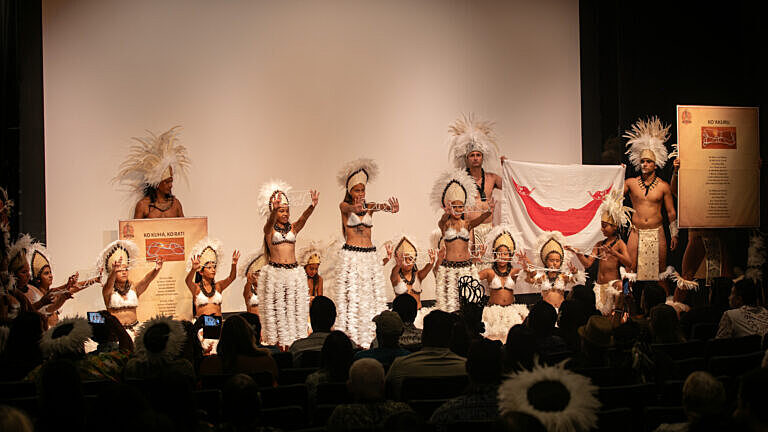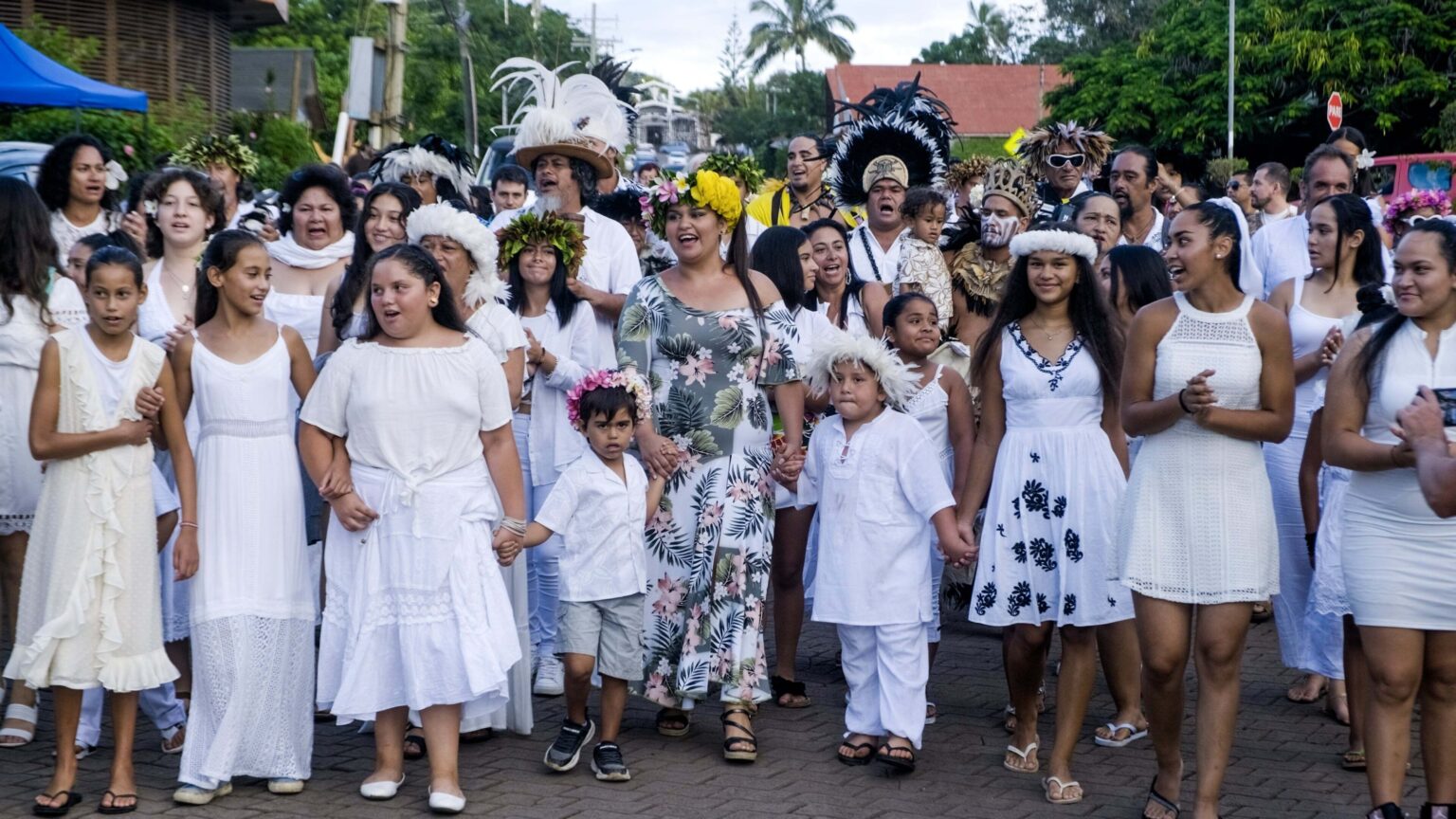Self-governance is leading the way forward for a Pacific Island community that is vulnerable to climate change.
In a remote Pacific Island, the Indigenous People of the Municipality of Rapa Nui have cared for their territory and practiced their self-governance system since time immemorial.
Today, the Rapa Nui has a population of 7,750 people from 36 families, inhabiting a 164-square-kilometer tropical rainforest on the Rapa Nui Island, also known as Easter Island. A municipality within the official Chilean country, it is an Indigenous land in the middle of the Pacific Ocean, about 3,800 kilometers from continental Chile and 4,000 kilometers from Tahiti.
The Rapa Nui People have tirelessly worked to defend their territory, environment, and culture, and have long protected their rights as Indigenous Peoples. It was only in 1966, after ongoing uprisings and demands of the Rapa Nui People, that the State of Chile recognized them as a People with rights, creating the Department of Easter Island and its Municipality. As a symbol of autonomy, the Rapa Nui People elected their first mayor, and have since chosen their leaders of the municipality.
‘Tapu’: Protecting The Community From COVID
At the onset of the Covid-19 pandemic, as societies around the world struggled to find shared solutions to the health crisis in an unprecedented scenario, the strength of the Rapa Nui’s ancestral culture and governance system proved essential to the community’s ability to protect itself from the pandemic on its own terms. The Rapa Nui emerged as a leader in best practices internationally, demonstrating how communities can act responsibly to protect themselves, others, and most importantly, their elders.
When the Government of Chile lifted health restrictions on Easter Island in March 2020 – without considering the impending health and humanitarian crisis that could further expose the inhabitants of Rapa Nui to Covid-19 – the Municipality of Rapa Nui immediately invoked its ancestral law.
Through a measure called Tapu, an ancestral concept based on a sacred order of coexistence and respect for the norms of nature, local authorities called a total voluntary quarantine throughout the Rapa Nui Island. The community collectively abided by this ancestral measure and the virus was fully eradicated on the island after the first few cases were registered, and the community remained at zero cases throughout the isolation period.
“Tapu is a Polynesian Rapa Nui concept of looking after our people, our elder people, which is the wisdom of the community,” said Pedro Edmunds Paoa, Mayor of Rapa Nui. “We all together united [with] this pandemic situation.”
Additionally, the Rapa Nui community leveraged another key ancestral Indigenous principle, Umanga, to strengthen their bonds during these challenging times. According to Paoa, Umanga signifies mutual assistance: “Everyone helps each other. You help yourself, sustain yourself, and extend a helping hand to others. We are all united as one.”
Alliances With the Indigenous Youth Caring For All Forms Of Life
While Indigenous Peoples around the world have distinct cultures and histories, they often share reciprocal relationships with each other and with the Earth, aiming to achieve cultural, social, ecological, and spiritual harmony.
The Rapa Nui People are focused on caring for nature and all members of their community, while seeking a sustainable world based on their traditional knowledge and strengthening of their culture. Traditional food, a healthy environment, a spiritual connection with the land, and life in society are also essential for the Rapa Nui.
The community has historically developed what is known as a “chiefdom society,” consisting of clans and tribes, where the authority of elders unites Rapa Nui families and ensures the transmission of ancestral values from one generation to the next. Through the Indigenous Law, the people manage and contribute to preserving their natural resources, lands, and territory, as well as their archaeological and historical heritage.
The Municipal Council, composed entirely of Rapa Nui members, works on cultural, environmental, social, and human rights initiatives, maintaining the principles of traditional Rapa Nui customs and organizing open community conversations to tackle the issues that affect the territory. Working side-by-side with three traditional representative bodies – the Council of Elders, the Rapa Nui Parliament, and the Honui or Assembly of Clans – the Council’s role includes implementing programs, dialoguing with the Chilean government, and planning for the future.
Educating Youth For The Future
In 2018, the Municipality of Rapa Nui launched an environmental education program for its Indigenous youth. The Ŋā Poki Henua initiative equips children and teenagers with ancestral knowledge and practical skills to care for their ecosystem and address environmental challenges.
Recognizing Rapa Nui’s vulnerability to climate change as a Pacific Island community, the initiative leverages ancestral practices to instill youth with a deep connection to their homeland. Its holistic approach promotes emotional, social, natural, spiritual, and cultural harmony within the community.
“Our greatest dream is to create a Rapa Nui educational curriculum, and we are materializing this dream through these activities,” Vairoa Ika Guldman, Director of Environment of the Municipality of Rapa Nui, shared with other Indigenous Peoples during a meeting of the Wayfinders Circle.
Today, the Rapa Nui People are working towards creating their own constitutionally recognized government, which will legally differentiate the territory from other Chilean provinces, grant the Rapa Nui People with greater autonomy, and allow them to effectively exercise their right to self-determination.


